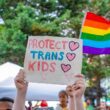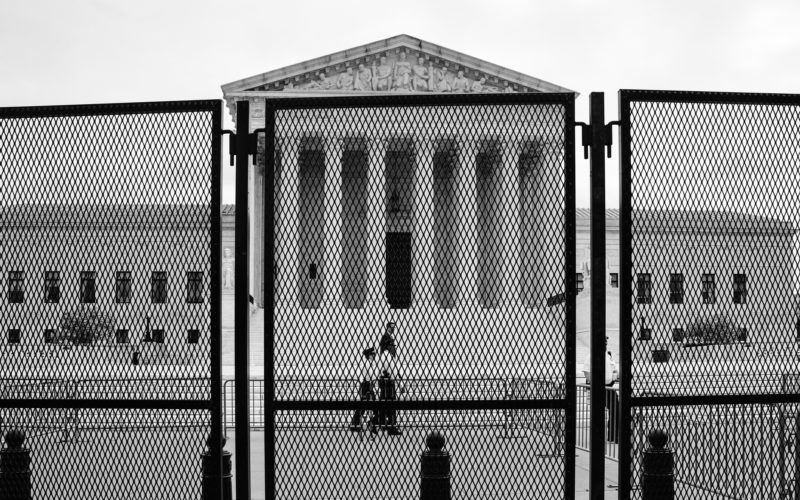Sign up here to receive The Yappie's weekly briefing on Asian American + Pacific Islander politics and support our work by making a donation.
Asian Americans and Pacific Islanders—facing cultural stigma, inequitable access to healthcare, and language barriers—would be at greater risk for health complications associated with unsafe abortions, including death, if the Supreme Court overturns the landmark 1973 ruling Roe v. Wade, abortion rights advocates and lawmakers warned Friday.
The leaked Supreme Court draft, penned by Bush appointed-Justice Samuel Alito, would particularly impact Asian American women, who at one point were the second most likely group to receive an abortion.
35% of pregnancies end in abortions for AAPI women, Sung Yeon Choimorrow, the executive director of National Asian Pacific American Women's Forum (NAPAWF), said at a press conference Friday.
“The fact that 60% of abortions are happening in communities of color demonstrates this country has failed women of color in health care and wellbeing in general,” Choimorrow said.
Nearly 7 in 10 Asian adults say abortion should be legal in all or most cases—compared to a national average of 6 in 10 Americans, according to a 2021 Pew Research study.
AAPIs may not speak as publicly about their experiences with abortion due to cultural stigma, but AAPI women undergo the procedure at the same or higher rates compared to other racial groups in the U.S.
“If Roe is overturned, pregnant AAPI women are more likely to become targets of criminal prosecution as a result of racial profiling,” states a 2021 amicus brief which AAPI advocacy groups filed in response to Mississippi’s 15-week abortion ban. “Millions of AAPI women” in at least 22 states would be harmed.”
A majority of Americans support abortion but “the impacts of these abortion bans are felt most acutely by communities of color, including the Asian American Pacific Islander community,” Rep. Judy Chu (D-California) said at Friday’s press conference.
A 2020 study found that most AAPI ethnic groups suffer increased maternal risks compared to white women. Abortion restrictions would force more AAPIs to to carry pregnancies to term even if it endangers their lives or stems from sexual violence. It could also interfere with doctors’ ability to treat miscarriages.
“Our most vulnerable communities, including people of color, low-income communities, and survivors of abuse will bear the brunt of the consequences of this unlawful and unjust rollback of set precedent,” added Rep. Pramila Jayapal (D-Washington), who has publicly spoken about her experience getting an abortion.
In the states most likely to ban abortion, greater proportions of people of color are seeking out the procedure, according to Ushma Upadhyay, a public health social scientist at the University of California, San Francisco. People of color make up 60% of those undergoing abortions—Black and Hispanic women have the highest abortion rates, according to the CDC—and would be more widely affected by the reversal of Roe v. Wade.
In the past year, AAPIs have mobilized in droves to protest red states’ bans. Many—like Rep. Michelle Steel (R-California)—have also spoken up in support of these restrictions, arguing that each pregnancy deserves its chance at life.
After the Atlanta shootings last year, nearly a dozen AAPI advocacy groups launched a nationwide campaign spotlighting the AAPI movement for reproductive justice as part of the fight for a “person’s right to choose.”
The ruling from the majority-conservative Supreme Court is likely to come any day. The Senate failed to codify abortion rights earlier this week after all Republicans and Democratic Sen. Joe Manchin (W.Va.) voted against the bill.
The Yappie is your must-read briefing on AAPI power, politics, and influence, fiscally sponsored by the Asian American Journalists Association. Make a donation, subscribe, and follow us on Twitter (@theyappie). Send tips and feedback to [email protected].









